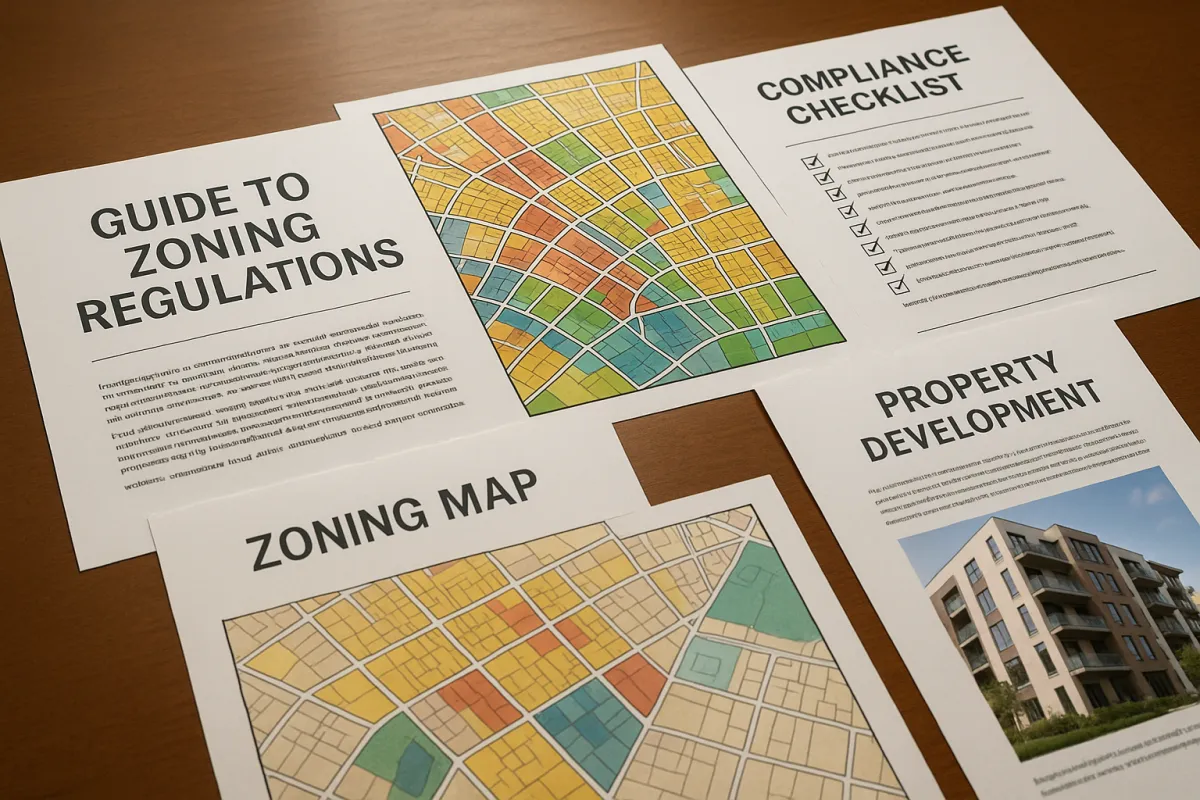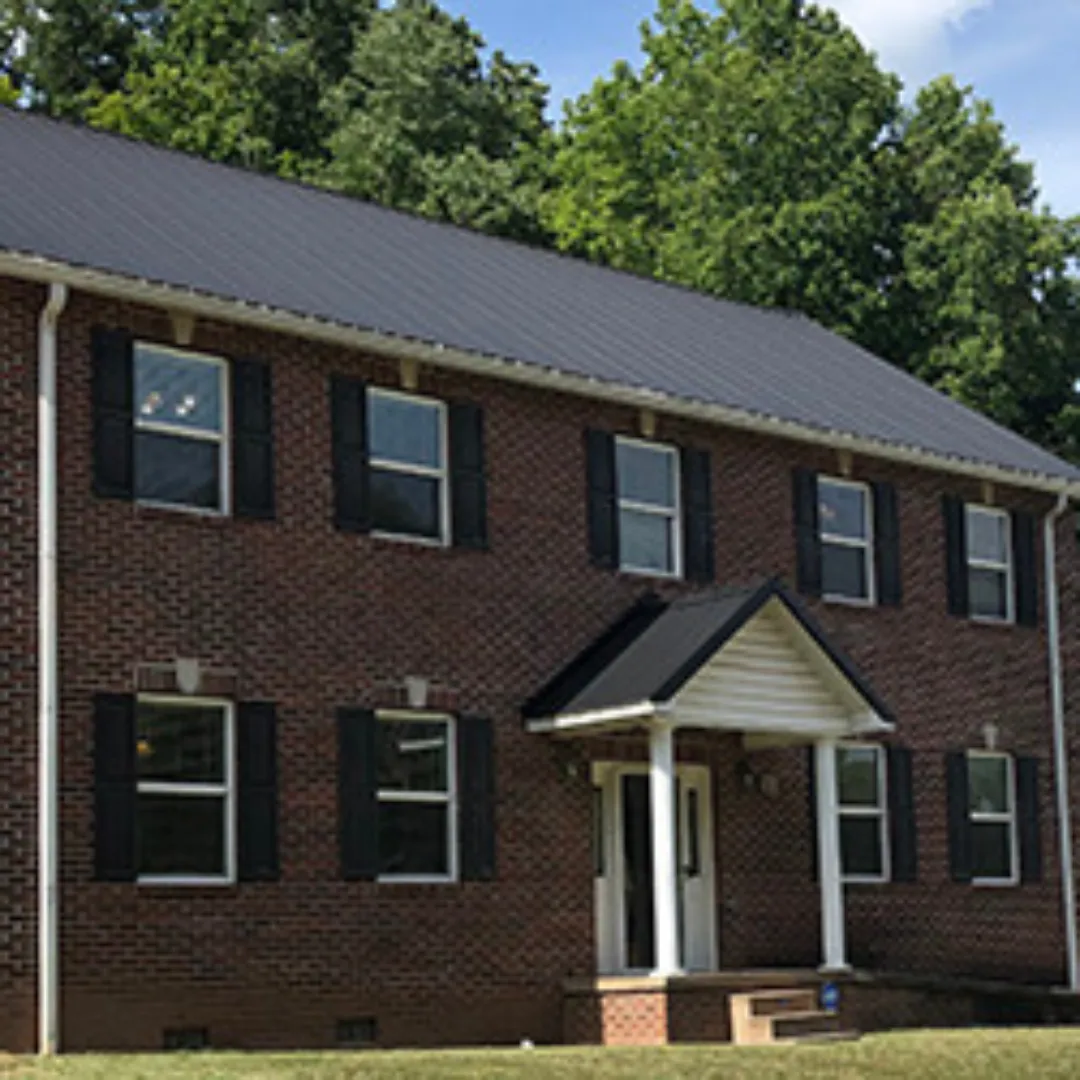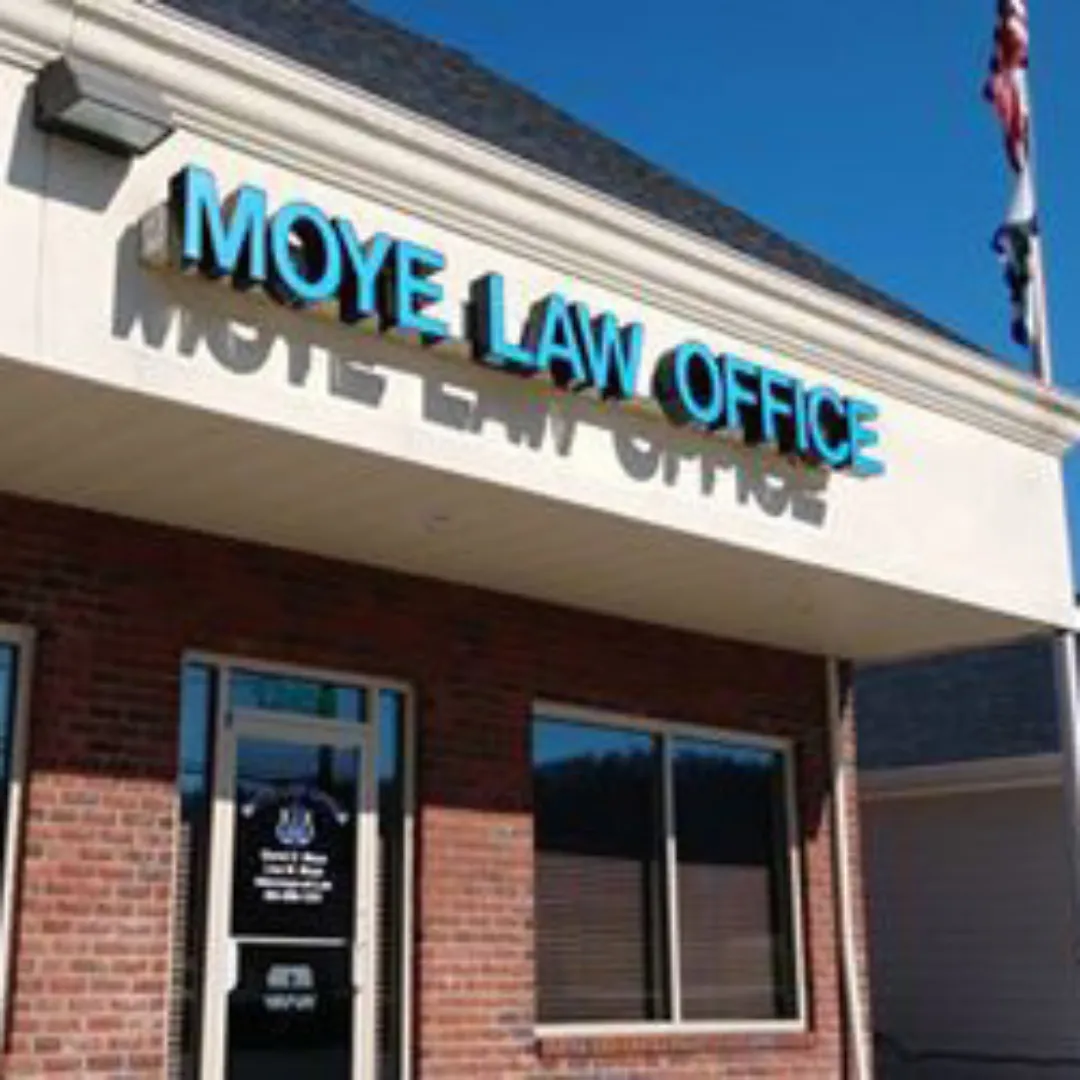
Blog
Blog

Comprehensive Guide to Zoning Regulations for Real Estate
Comprehensive Guide to Zoning Regulations for Real Estate: Understanding Local Laws, Compliance, and Property Impact
Zoning laws don’t just dictate what you can build—they influence the entire community landscape, shape property values, determine business opportunities, and protect public interests. Whether you're a homeowner, real estate investor, developer, or real estate agent, understanding zoning regulations is critical for managing legal risk and making informed decisions.
At Moye Law Office, we help clients across West Virginia—from individual buyers to developers and businesses—navigate complex zoning ordinances, compliance requirements, and real property laws with clarity and confidence. Here's everything you need to know about how zoning laws affect your land, your project, and your rights.
What Are Zoning Regulations and Why Do They Matter in Real Estate?
Zoning regulations are local government policies that designate how land within a municipality can be used. They influence whether a parcel can support a warehouse, mobile home park, condominium, factory, or residential area—and at what scale, density, and design.
These laws affect:
Real estate development strategy
Property tax rates and assessments
Community health, noise, and pollution control
Equity in affordable housing access
Long-term investment and land use patterns
Zoning plays a crucial role in asset protection, aesthetic appeal, and limiting nuisance risks, especially in mixed-use neighborhoods where industrial zoning meets residential boundaries.
What Is Zoning and How Does It Control Land Use?
Zoning assigns specific uses and development rules to land parcels. It defines how many stories a building may have, its distance from property lines (known as setbacks), its floor area ratio (FAR), and whether it must meet fire safety, landscaping, or accessibility codes.
For example:
A lot in an agricultural zone may allow barns or mobile homes, but not skyscrapers or nightclubs.
A commercial zoning district may support retail but restrict auto repair due to vehicle noise or environmental health risks.
How Do Zoning Regulations Affect Property Development and Value?
Zoning impacts:
Market price and income potential
Project feasibility for developers and investors
Design elements such as fences, green space, and parking
Availability of tax incentives or property tax breaks
Access to home insurance and mortgage approval
Zoning can enable a project or create legal friction requiring variance, mediation, or even arbitration if disputes arise.
What Are the Key Components of Local Zoning Laws?
Zoning districts (e.g., residential, commercial, industrial)
Development standards (height, density, design)
Permitted vs. prohibited uses
Easements, flood zones, and historic site overlays
Administrative procedures for appeals, special permits, or eminent domain notices
These rules often align with community master plans, and compliance is monitored through permit applications, audits, and site inspections.
What Are the Different Types of Zoning Districts and Their Uses?
Residential: Houses, subdivisions, mobile homes, condominiums
Commercial: Shops, offices, restaurants, advertising signage
Industrial: Factories, processing plants, warehouse space
Agricultural: Farms, livestock, and rural dwellings
Mixed-Use: Combines residential and commercial for efficient land use
Historic or Scenic Overlays: Often include areas listed in the National Register of Historic Places
How Do Zoning Districts Regulate Permitted Uses and Building Restrictions?
Zoning districts set clear boundaries for:
Building dimensions and security features
Lot size and fence regulations
Allowed business activities
Rules regarding signage, advertising, and tenant types
Failing to follow these can lead to legal liability, contract disputes, or revoked building permits.
How Can Real Estate Zoning Maps Help Identify Zoning Districts?
Zoning maps provide visual references showing how each parcel is zoned. They're valuable tools in:
Planning a development
Identifying zoning conflicts
Conducting due diligence before buying real estate
How to Read and Understand Zoning Codes and Ordinances for Your Address?
Each municipality publishes its own zoning code—usually available online or through the zoning office. You can search by property address to learn:
Permitted uses
Special overlays (like wildfire zones)
Floor area ratio
Required setbacks and design standards
If codes are unclear, a real estate lawyer can help interpret them—especially for mixed-use or spot zoning issues.
What Is a Zoning Compliance Checklist and How Does It Ensure Project Approval?
A zoning compliance checklist helps verify whether your project:
Matches the allowed use under local law
Meets insurance and building code requirements
Avoids triggering nuisance complaints or racial segregation patterns
Accounts for traffic flow, emergency access, and stormwater management
Following this checklist reduces your risk of delayed permits or lawsuits.
What Common Zoning Violations Should Property Owners Avoid?
Unauthorized subdivisions
Renting to unauthorized business types
Expanding structures beyond height or setback limits
Operating without business licenses
Improper signage or fencing
These violations may trigger legal disputes, cease-and-desist orders, or court-mandated dispute resolution.
How Do Zoning Changes and Variances Affect Real Estate Projects?
Zoning changes can:
Increase value (via rezoning for higher-density or mixed-use)
Create friction with neighbors (if spot zoning appears unfair)
Limit development for those in newly downzoned areas
A variance provides legal flexibility when a property can't comply with existing codes due to its shape, size, or unique characteristics.
What Is a Zoning Variance and When Is It Required?
You may need a variance when:
A structure can’t meet setback or height limits due to lot shape
You're converting a warehouse to lofts in an industrial zone
A condominium association seeks to modify shared space use
Variances require legal filing, justification, public notice, and zoning board approval. Legal counsel is highly recommended.
How Does the Zoning Appeals Process Work for Denied Permits or Variances?
Review the basis of the denial
File an appeal within the allowed timeframe
Prepare evidence and expert testimony (such as on traffic, pollution, or health concerns)
Present your case to the Board of Zoning Appeals
Consider court appeal or mediation if necessary
How Do Zoning Laws Impact Homeowners, Developers, and Commercial Owners Differently?
Homeowners may face restrictions on additions, fences, or ADUs
Real estate developers must handle site planning, probate issues, and mergers and acquisitions
Commercial owners navigate signage rules, lease limitations, nuisance laws, and occupational safety and health standards
What Is the Permitting Process Related to Zoning Regulations?
Permits may be required for:
New construction
Remodeling or expansions
Changes in use
Subdivisions or lot line adjustments
Applications often include:
Site plans
Environmental assessments
Mortgage or financing disclosures
Public notice to surrounding property owners
How to Stay Informed About Zoning Changes in Your Community?
Subscribe to city or county newsletters
Join local planning board meetings
Follow zoning changes on your municipality’s website
Ask your real estate agent or lawyer about proposed amendments
Final Thoughts
Zoning law is more than a bureaucratic hurdle—it’s a cornerstone of community structure, legal risk management, and long-term property strategy. Whether you’re planning to build, invest, or renovate, knowing the zoning rules for your area protects your budget, enhances your project’s success, and avoids conflict with local regulators or neighbors.
At Moye Law Office, we combine deep knowledge of real estate law, corporate law, and land-use policy to help clients achieve zoning compliance, defend their property rights, and build with confidence. If you need zoning support, schedule a consultation with our experienced legal team.
Moye Law Offices
We have two offices in West Virginia: Winfield and Cross Lanes.

CROSS LANES

Comprehensive Guide to Zoning Regulations for Real Estate
Comprehensive Guide to Zoning Regulations for Real Estate: Understanding Local Laws, Compliance, and Property Impact
Zoning laws don’t just dictate what you can build—they influence the entire community landscape, shape property values, determine business opportunities, and protect public interests. Whether you're a homeowner, real estate investor, developer, or real estate agent, understanding zoning regulations is critical for managing legal risk and making informed decisions.
At Moye Law Office, we help clients across West Virginia—from individual buyers to developers and businesses—navigate complex zoning ordinances, compliance requirements, and real property laws with clarity and confidence. Here's everything you need to know about how zoning laws affect your land, your project, and your rights.
What Are Zoning Regulations and Why Do They Matter in Real Estate?
Zoning regulations are local government policies that designate how land within a municipality can be used. They influence whether a parcel can support a warehouse, mobile home park, condominium, factory, or residential area—and at what scale, density, and design.
These laws affect:
Real estate development strategy
Property tax rates and assessments
Community health, noise, and pollution control
Equity in affordable housing access
Long-term investment and land use patterns
Zoning plays a crucial role in asset protection, aesthetic appeal, and limiting nuisance risks, especially in mixed-use neighborhoods where industrial zoning meets residential boundaries.
What Is Zoning and How Does It Control Land Use?
Zoning assigns specific uses and development rules to land parcels. It defines how many stories a building may have, its distance from property lines (known as setbacks), its floor area ratio (FAR), and whether it must meet fire safety, landscaping, or accessibility codes.
For example:
A lot in an agricultural zone may allow barns or mobile homes, but not skyscrapers or nightclubs.
A commercial zoning district may support retail but restrict auto repair due to vehicle noise or environmental health risks.
How Do Zoning Regulations Affect Property Development and Value?
Zoning impacts:
Market price and income potential
Project feasibility for developers and investors
Design elements such as fences, green space, and parking
Availability of tax incentives or property tax breaks
Access to home insurance and mortgage approval
Zoning can enable a project or create legal friction requiring variance, mediation, or even arbitration if disputes arise.
What Are the Key Components of Local Zoning Laws?
Zoning districts (e.g., residential, commercial, industrial)
Development standards (height, density, design)
Permitted vs. prohibited uses
Easements, flood zones, and historic site overlays
Administrative procedures for appeals, special permits, or eminent domain notices
These rules often align with community master plans, and compliance is monitored through permit applications, audits, and site inspections.
What Are the Different Types of Zoning Districts and Their Uses?
Residential: Houses, subdivisions, mobile homes, condominiums
Commercial: Shops, offices, restaurants, advertising signage
Industrial: Factories, processing plants, warehouse space
Agricultural: Farms, livestock, and rural dwellings
Mixed-Use: Combines residential and commercial for efficient land use
Historic or Scenic Overlays: Often include areas listed in the National Register of Historic Places
How Do Zoning Districts Regulate Permitted Uses and Building Restrictions?
Zoning districts set clear boundaries for:
Building dimensions and security features
Lot size and fence regulations
Allowed business activities
Rules regarding signage, advertising, and tenant types
Failing to follow these can lead to legal liability, contract disputes, or revoked building permits.
How Can Real Estate Zoning Maps Help Identify Zoning Districts?
Zoning maps provide visual references showing how each parcel is zoned. They're valuable tools in:
Planning a development
Identifying zoning conflicts
Conducting due diligence before buying real estate
How to Read and Understand Zoning Codes and Ordinances for Your Address?
Each municipality publishes its own zoning code—usually available online or through the zoning office. You can search by property address to learn:
Permitted uses
Special overlays (like wildfire zones)
Floor area ratio
Required setbacks and design standards
If codes are unclear, a real estate lawyer can help interpret them—especially for mixed-use or spot zoning issues.
What Is a Zoning Compliance Checklist and How Does It Ensure Project Approval?
A zoning compliance checklist helps verify whether your project:
Matches the allowed use under local law
Meets insurance and building code requirements
Avoids triggering nuisance complaints or racial segregation patterns
Accounts for traffic flow, emergency access, and stormwater management
Following this checklist reduces your risk of delayed permits or lawsuits.
What Common Zoning Violations Should Property Owners Avoid?
Unauthorized subdivisions
Renting to unauthorized business types
Expanding structures beyond height or setback limits
Operating without business licenses
Improper signage or fencing
These violations may trigger legal disputes, cease-and-desist orders, or court-mandated dispute resolution.
How Do Zoning Changes and Variances Affect Real Estate Projects?
Zoning changes can:
Increase value (via rezoning for higher-density or mixed-use)
Create friction with neighbors (if spot zoning appears unfair)
Limit development for those in newly downzoned areas
A variance provides legal flexibility when a property can't comply with existing codes due to its shape, size, or unique characteristics.
What Is a Zoning Variance and When Is It Required?
You may need a variance when:
A structure can’t meet setback or height limits due to lot shape
You're converting a warehouse to lofts in an industrial zone
A condominium association seeks to modify shared space use
Variances require legal filing, justification, public notice, and zoning board approval. Legal counsel is highly recommended.
How Does the Zoning Appeals Process Work for Denied Permits or Variances?
Review the basis of the denial
File an appeal within the allowed timeframe
Prepare evidence and expert testimony (such as on traffic, pollution, or health concerns)
Present your case to the Board of Zoning Appeals
Consider court appeal or mediation if necessary
How Do Zoning Laws Impact Homeowners, Developers, and Commercial Owners Differently?
Homeowners may face restrictions on additions, fences, or ADUs
Real estate developers must handle site planning, probate issues, and mergers and acquisitions
Commercial owners navigate signage rules, lease limitations, nuisance laws, and occupational safety and health standards
What Is the Permitting Process Related to Zoning Regulations?
Permits may be required for:
New construction
Remodeling or expansions
Changes in use
Subdivisions or lot line adjustments
Applications often include:
Site plans
Environmental assessments
Mortgage or financing disclosures
Public notice to surrounding property owners
How to Stay Informed About Zoning Changes in Your Community?
Subscribe to city or county newsletters
Join local planning board meetings
Follow zoning changes on your municipality’s website
Ask your real estate agent or lawyer about proposed amendments
Final Thoughts
Zoning law is more than a bureaucratic hurdle—it’s a cornerstone of community structure, legal risk management, and long-term property strategy. Whether you’re planning to build, invest, or renovate, knowing the zoning rules for your area protects your budget, enhances your project’s success, and avoids conflict with local regulators or neighbors.
At Moye Law Office, we combine deep knowledge of real estate law, corporate law, and land-use policy to help clients achieve zoning compliance, defend their property rights, and build with confidence. If you need zoning support, schedule a consultation with our experienced legal team.
Moye Law Offices
We have two offices in West Virginia:
Winfield and Cross Lanes.

CROSS LANES
We Are Here To Help
Do you have a query or problem that you would like to talk about, or are you curious to hear more about how we can help you?
Get in touch today! We look forward to hearing from you.
Assistance Hours
Monday – Friday: 8:30am – 4:30pm
Saturday: By appointment only
Sunday: CLOSED
Subscribe to our Newsletter
We Are Here To Help
Do you have a query or problem that you would like to talk about, or are you curious to hear more about how we can help you?
Get in touch today! We look forward to hearing from you.
Assistance Hours
Monday – Friday 8:30am – 4:30pm
Saturday: By appointment only
Sunday CLOSED

